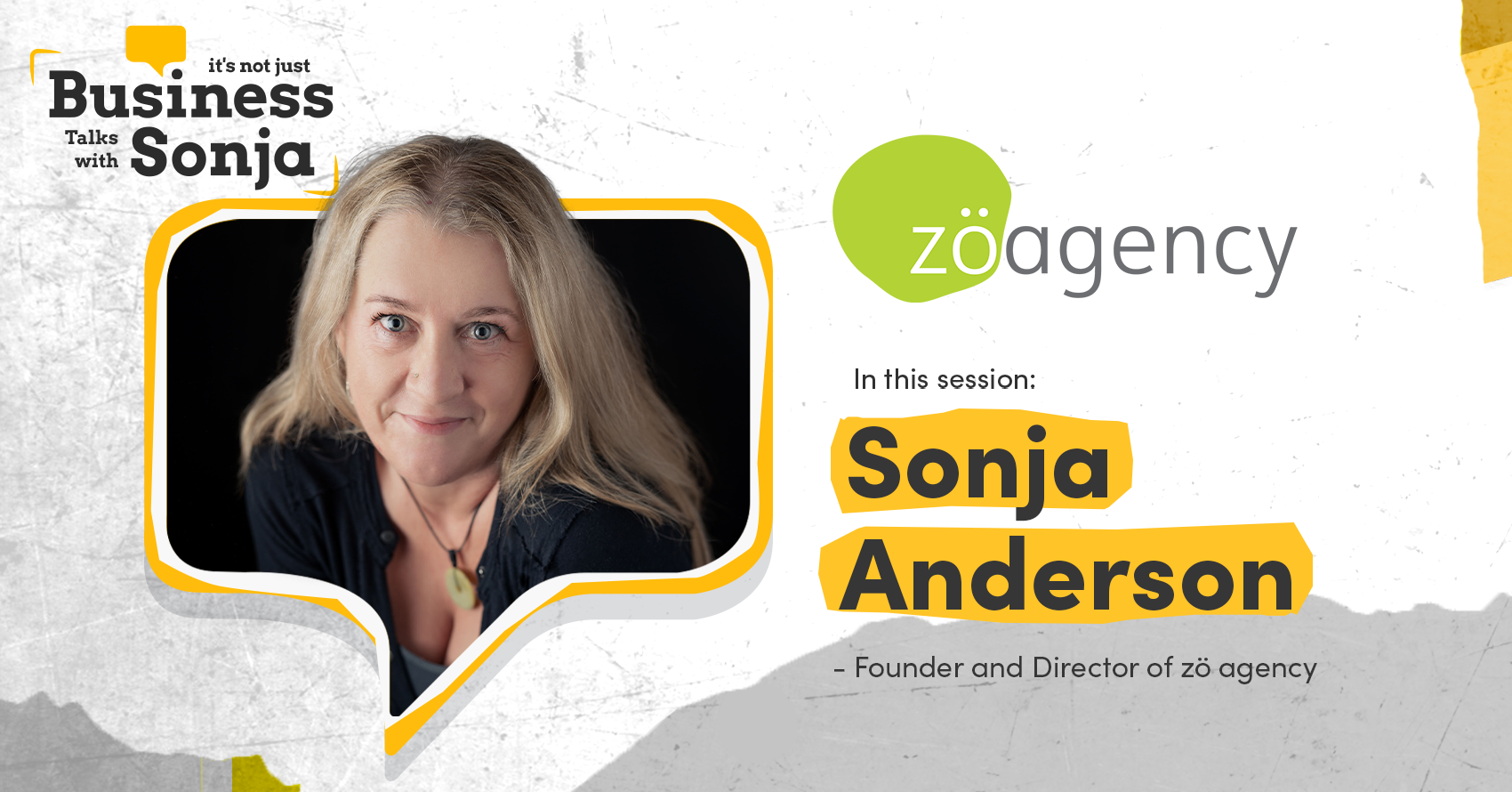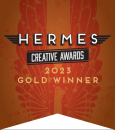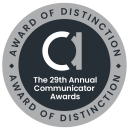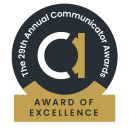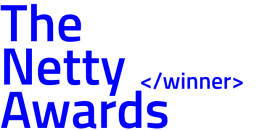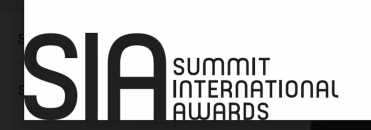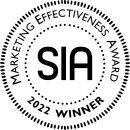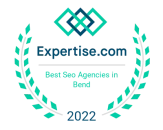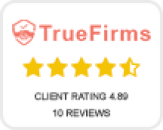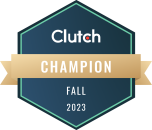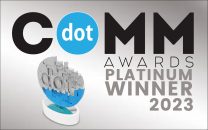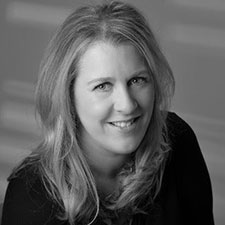
Sonja Anderson is the Director and CEO of zo agency. zo agency acts as the marketing arm or extension to a marketing department for small to midsize businesses. They are a full service agency and offer every manner of skills including branding, logo, web design and development, social media, SEO, paid digital, public relations, traditional media buys, production and so much more. zo agency helps America’s businesses grow from small to thriving organizations that serve, employ, nurture, and contribute to their communities. When zo helps business grow, we help the backbone of America grow.
Sonja Anderson started her career in the 90s in radio. Though Sonja was thriving, she realized that some businesses she consulted would be better served using another medium for marketing. Pitching just one medium fell short of full service consulting and definitely fell short of Sonja’s vision. Her first agency was born. .
Here’s a glimpse of what you’ll learn:
- Sonja Anderson dives into her diverse childhood and how it motivated her to find a creative but lucrative career
- Sonja talks about why she moved to the US and how she excelled in her first job — radio sales
- Why Sonja left radio to create her agency and how she built the unparalleled team they have today
- The story behind the podcast artwork
- How Sonja blends her artistic roots with zo agency
In this episode…
Sonja Anderson has dedicated the last two decades of her career to small to midsize businesses with 1-100 million in annual revenue. This group represents over 90% of business in our country and gets the least amount of traction. Face it, building an entire marketing department from the inside is costly and a huge responsibility for any company. But how does a small business play in the big field without one. That’s where zo agency is the differentiator – the marketing arm that business needs without the payroll expenses, management and costs.
In this episode of It’s Not Just Business Talks with Sonja, John Corcoran talks with Sonja Anderson about the adventures along her journey of creating zo agency. Sonja discusses her unusual childhood in Scotland, why she wanted to come to the US, how she learned to excel in radio sales, and her vision for zo agency.
Resources mentioned in this episode:
Sponsor for this episode…
This episode is brought to you by zo agency, a tight-knit team of online and offline marketing pros.
At zo, we serve as the marketing department for small to mid-sized businesses.
We know that marketing and advertising can be demanding and time-consuming — that’s why we make the process so easy-breezy that you don’t have to sacrifice precious time to get the results you need.
To learn more, visit zo.agency or call (541) 633 4725.
Episode Transcript
Sonja Anderson 0:19
Sonja Anderson here I am the host of this podcast where I talk with top leaders about their journeys. I have John Corcoran here of Rise25 who has done 1000s of interviews with successful entrepreneurs like myself, investors and CEOs. And we have flipped the script today and he will be interviewing me.
John Corcoran 0:39
Alright, Sonja, thanks so much for having me. I’m excited to dive into your backstory, how you ended up coming from Germany all the way to the United States, and how you got into the work that you do. So I’m really excited to get into that background and that backstory and some of the highs and lows along the way. But first before we get into that this episode is brought to you by zo agency, which is a tight knit team of online and offline marketing pros. zo serves as the marketing department for small to midsize businesses. They know that marketing and advertising can be demanding and time consuming. That’s why they make the process so easy, breezy, that you don’t have to sacrifice precious time to get the results you need. To learn more, go to zo dot agency that zo dot agency or you can also call 5416334725. All right, Sonja. So let’s get into your story. So you’re you’re from Germany originally went to school in Scotland, and you end up coming over to the United States at the age of 17. What was that? Like? ride? Yeah, amazing story. Good. Let’s, let’s hear about it. How did you end up over here?
Sonja Anderson 1:48
Oh, well, the story starts in Germany where I was born to German parents. People always ask me, are you a Navy brat? No, I’m not. I’m actually just full blooded German. I’m not as you can tell by my accent, because I’ve been here for a heck of a long time. But young parents divorced and moved me to Scotland, where I grew up, and I I lived in the Highlands of Scotland and went to school there. And, unfortunately, not the best home environment for a thriving curious child like myself. And my parents were hippies, man. They were people that planted trees, and they saved whales. And they did all the good things, right? We had the little red bus, painted red with a peace sign on the back. And they were candle makers. They were you know, not great parents, but they did a lot of other great things. And as a result, naturally, I wanted the complete opposite from my life. I wanted to be a high powered executive living in an apartment in London, you know wearing a suit. But you know, you can’t escape your childhood. I have a little bit of hippie slash creative that came from that foundation. Needless to say, That’s filtered through into my adult life. But yeah, I left home when I was young.
John Corcoran 3:09
Where did you land in the United States?
Sonja Anderson 3:11
Yeah, so I landed in Seattle. But you know, for the first couple years after I left home, I kind of cruised around Europe. I worked in youth hostels, you know, for a bed and food most of the time and I saved up enough I scrimmaged up enough money to to get a flight to Seattle. And that’s where I landed. And I spent the first few years in this country and I just never wanted to go back. So I didn’t. I overstayed my visa. I was an immigrant without documentation, as so many of our nation can attest to in their own journeys. And so I’m now a full American citizen, just full disclosure. But yeah, I landed there. And for the first few years, I was just a homeless illegal immigrant doing my thing.
John Corcoran 3:56
Wow. Yeah, not an easy, not an easy way to get by.
Sonja Anderson 4:00
No, but you know what, this is the land of freedom and land of opportunity. And I came here hopeful and it delivered. America delivered for that.
John Corcoran 4:11
I mean, you are in many ways the American dream because you have a surviving and thriving company now. Right, you know, helping lots of different companies throughout the United States. Yeah, so in many ways, that’s, that’s a personification of the American dream. What do you take to the work that you do today? And we’ll get into, you know, the company and how you got into the, into a full-service agency, but is there anything from that? You know, childhood, or upbringing or your years and you know, what, after you landed in Seattle, that you bring to sort of you do today?
Sonja Anderson 4:49
Well, I think survival makes keen strategists out of us because we’re always looking for how to get to the next step. The next perhaps opportunity. So I’m not… I don’t like the phrase, but I do understand the term, fake it till you make it. I remember my first job where I had to wear a suit, and I had to collaborate together with the help of some friends for my first day as a radio gal. And, you know, I, the first thing I did on my first day was look around the room and see who was the most successful radio person there who was billing the most. And I studied him hard. And as soon as I knew what he did, and how he did it, my next mark was be better than him. And I did for the first few years, I won Rookie of the Year, every year for most new business, even when I had a big book. And so I just, um, I learned, I learned by studying the environment that comes from having to do so for other reasons when you’re a kid, right?
John Corcoran 5:51
Yeah, I mean,landing in a new country, learning the culture, learning the way that people live, it’s kind of sounds like that’s what you did when you did radio sales.
Sonja Anderson 6:00
Absolutely. And I was versatile in radio sales. But the problem with radio sales, and I’m sure that if there’s any marketing folks out there that just sell one product like TV or radio, and it’s a, it’s wonderful out there wonderful mediums, I’m not bashing any of them. But for me, I was selling one radio group in a market. And there were just so many slices of that pie, and I only had one slice, and I would be sitting with a client, you know, pitching my little radio group, and realizing this isn’t actually the right fit for them, what they really need is this TV station over here, what they really ought to do is a little PR over here. And I actually started surrendering my own business, my own sales in order to advise clients to go a different route, which was fine. But when I eventually left the business, I obviously had a non-compete, and I adhered to that. And then I immediately went into my own agency process. And some of those clients said, “Yeah, you’re finally an agency, we want to work with you “because I had become their trusted advisor over those years. So it was a transition that was not that hard to make, because I was already kind of doing it, you know?
John Corcoran: And then did you have to hire people that had expertise in all the different areas of marketing, like television or building a website?
Sonja Anderson: Sure. You know what, John, actually, at first, I thought, well, I’ll just sell media, right? Because that was what I knew. I remember the first client that said, Hey, could you also, could you just design this brochure for us? And I have no idea.
And then I scrambled to find somebody who knew how to design a brochure. And we did it. And then I wasn’t satisfied with that. Then I needed to learn Adobe, and I wanted to understand how they did it. I didn’t want to become a brochure designer by any stretch of the imagination. But I always want to understand how people are getting things done. And so I learned the full suite of Adobe. The graphic designer that did that first brochure for me said, “that takes years to learn”. And I devoured it, just so that I could be a guide to my production people. So eventually, I had to learn… What does it look like to be on a TV set? What does it look like… I built my first websites, I did my first TV production, I did all the things that we now offer, first came with me working as a shadow behind someone else so that I could fully understand enough in order to guide them in their job; I don’t want to do their job. I don’t want to be a podcast maker. But I want to understand what you do. So that I can bring other clients to the table and say you’ve got to meet John, he does great podcasts. And I understand that process.
John Corcoran 8:37
So you’d like to understand it first and then and then bring in the team that then has more expertise or that handles it.
Sonja Anderson 8:45
Absolutely. And you know what, John, our team is absolutely unparalleled. Most of our team, the youngest people, in terms of experience, have 10 years experience. Most of my team I have were just laughing about this yesterday, double majors, right? And what they say, what does that get you? Well, it gets you more student debt, that’s for sure. But you know, my graphic designer has a master’s in illustration and copywriting or, you know, journalism, and communications. Every one of my team has one or two degrees, they’ve all been doing it for 20 to 30 years. So I have the best. And I still get to direct those guys with some, you know, flexibility, but I do get to direct what their work is going to look like.
John Corcoran 9:28
Yeah, what have been some of the challenges along the way with building the company, the agency to the level that it’s at now and bringing in a team and getting the team humming and working together.
Sonja Anderson 9:40
I think what I would say versus what my team would say about it are a little bit different. Um, I have a long leash but a very firm hand. So I’m taking brilliant people, brilliant creatives and making things systemized and fine tuned. So it serves the client best, not their own creative dreams. It is a bit of a challenge, right? If you work with creatives, they’re amazing human beings. And they’re gonna wake up at two in the morning and come up with a brilliant idea. And it’s not in the budget, and they’re going to have to just abandon that for right now. So it’s just the struggle between in a restaurant, right, you’ve got the kitchen, you’ve got the chefs. And they make beautiful food, and they put it up in the window and it’s hot, and they want it to get to the table immediately. But the server is over at the table, schmoozing the customer pouring a nice bottle of wine, up-selling, you know, desert, they’re in conflict with each other a little bit. And so a good manager, in my case, a good director is making that balance work.
John Corcoran 10:46
Yeah. Talk about some of the pit stops along the way, and the influential experiences that you had, you’ve got this beautiful podcast artwork that you designed that has Burning Man, has a double decker bus, has a couple other things on there that are meaningful to you.
Sonja Anderson 11:07
Sure. So I think that the story I’m telling by the artwork is that we all have a journey. And it’s not a straight line, as we all know, mine was heavily influenced by art. When I left when I was 15 years old, I joined the clown jewels, which is that double-decker bus and we traveled around the Highlands of Scotland and they performed; they were a theatre company. I was actually a nanny for one of the performers, newborn baby, so. So I got to experience and witness what real creatives are like, in their, you know, watching them in their place of habitat. You know, and of course, I went to Glastonbury festival every year for about 12 years, because my parents were candle makers. And so they sold candles there. So I got to watch. Just that cross-section of society, right. So you’ve got the gypsies and the hippies and the frat boys and the rock stars. So really studying society and taking it in, breathing it in was really, really instrumental for me. I am a student of people, again, that comes from having to be a survivor and be really aware of what’s going on around me. And then you did mention Burning Man, yes, I went to Burning Man for several years as well. In the early days, when it was still a bit more of an arts venue. I stopped going when it became a frat party. And that was about 2007. Well, somewhere in the mid 2000s. But not in the early days, it was really these gorgeous art installations, fire shows, brilliant, brilliant artists collaborating on things that were displayed there. A lot of people think of it’s just a big freedom, love fest. But it really wasn’t in those days, it was just really a gorgeous art experience.
John Corcoran 12:59
It’s funny to have these artistic roots, and then you’re drawn towards a job in London wearing a suit. But then it seems like you journeyed back to your creative roots.
Sonja Anderson 13:10
Sure, but we have to find a way to blend those two aspects, right. We do work in business, we work in large business national organizations. Our company, and we stand by this, is very grassroots, you know, our team before the days when you couldn’t go to the office, which was last year. You know, they ride bicycles, they work in flip flops, they drink beer in the afternoon, they bring their dogs, like we’re really about being genuine, authentic people. But we deliver at a really high level. And I think that’s kind of the way that I’ve ended up blending those two needs, which is authenticity and creativity. Along with my my high powered suit, when I ever wear it, right, we have to deliver to high-level clients and they’re not all I mean, that’s a credit union, that could be a hospital that could be a roofing company. So they don’t need, they don’t need that flair of diversity in their work necessarily. But we come from that background so we can see with a bit of a broader lens.
John Corcoran 14:11
Talk a little bit about what inspired you to start a podcast. I know we were talking before and you said you want to highlight people’s journey, their darker moments, the challenges, the struggles that they overcame?
Sonja Anderson 14:24
Mm hmm. Well, I think I gave the example too, right. A lot of people buy lottery tickets, and they want to wake up one morning as a millionaire. And I think that’s great. I mean, being a millionaire is great, and I have lots of clients that are in that bucket. But all of my clients that are in that bucket, I don’t have any lottery winners, every single one of them earned their way to where they are today and they all had pitfalls. None of us came unscathed through life to date. If they did, I’d love to interview them too. But I think that what makes you as a person is not where you are today and how you’ve arrived, but also everything that went into that; all of those weird blind spots and low moments as well as your eyes. I think, again, I like to see the kaleidoscope of a person, not just this one moment in time where they’ve arrived.
John Corcoran 15:13
That’s great. I think that’s going to be wonderful to listen to those conversations. Sonja, this has been great hearing your backstory. zo dot agency is the website, where can people go anywhere else that they can go in order to learn more about you or connect with you?
Sonja Anderson 15:28
Yeah, I love that. Just go straight to zo dot agency. And from that homepage scour around, you’ll see a little bit of our influence, my influence in there. But you’ll also see some amazing case studies and industries we work with. So you can see. See how that deepens. With each one
John Corcoran 15:44
The website is stunning. So just from starting from there, you should go just to check it out because it just grabs your attention. It’s beautiful. Yeah. Sonja, thanks so much. Great to talk with you, John. Thank you.

